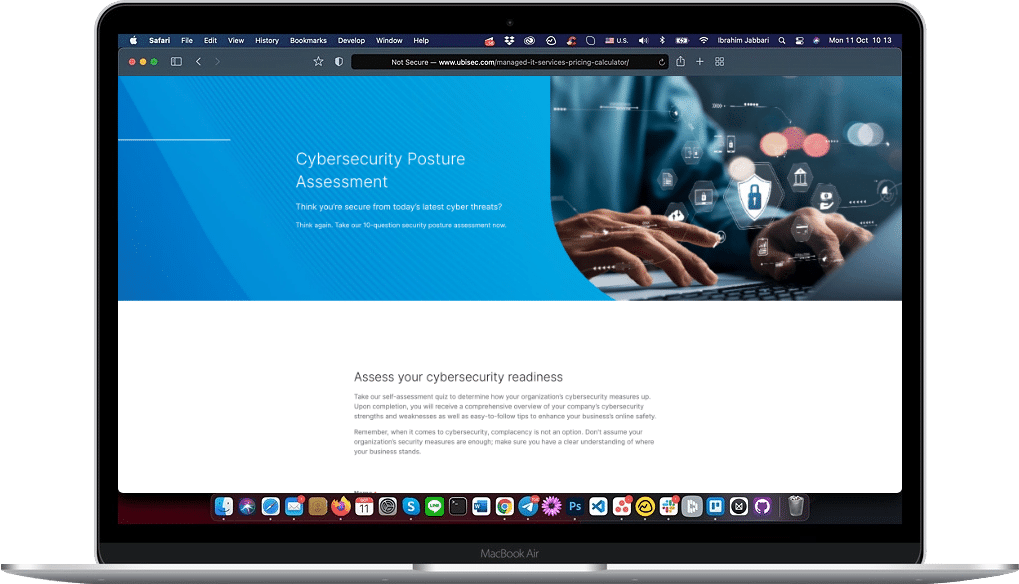In today’s digital world, cybersecurity tech has come a long way. But here’s the thing: no matter how advanced our systems get, there’s always one weak spot—us humans. Social engineering knows this all too well. It’s like the art of persuasion in the digital age, where cyber tricksters use psychology to get folks like you to spill the beans or do something risky. And here’s the kicker: it’s been around forever, and it keeps evolving! So, if you really want to stay ahead of the game, you’ve got to dig deep into the mind games these attackers play. Let’s peel back the layers of social engineering and shed some light on why staying sharp is more crucial than ever in the world of cybersecurity.
Phishing Unveiled: Recognizing the Bait
Phishing is the digital world’s con artistry, where cyber criminals masquerade as trustworthy entities to deceive individuals into parting with confidential information. This deception takes many forms, from the broad net of generic emails promising unexpected riches to the pinpoint accuracy of spear-phishing attacks aimed at specific individuals with tailored messages.
Recognizing these attempts requires you to:
- Scrutinize the sender’s email address for oddities.
- Question the urgency or emotional appeal of the message.
- Verify the legitimacy of links without clicking on them.
Educating oneself and others on these critical indicators transforms potential victims into informed gatekeepers capable of thwarting phishing attempts before they can harm.
Are you on the fence about hiring your next IT Firm? Click here to download our free IT Services Comparison Guide to take the guest work out of your search!

The Anatomy of a Social Engineering Attack
To understand the intricacies of a social engineering attack, it’s crucial to delve into the attacker’s playbook. These attacks are meticulously orchestrated, with each step carefully planned out. The process begins with reconnaissance, where attackers gather personal or organizational information.
Here’s a breakdown of the key stages:
Reconnaissance:
- Attackers initiate social engineering attacks by conducting thorough reconnaissance to gather personal or organizational information.
Establishing Contact:
- Once sufficient information is gathered, attackers establish contact using a pretext, creating a facade of legitimacy.
Exploitation:
- The final stage involves exploiting the established trust to extract information or gain unauthorized access.
Varied Tactics:
- Attackers utilize a range of tactics, including phishing emails, fake websites, pretexting calls, and baiting with malware-laden devices.
Understanding Objectives:
- By dissecting these methods, valuable insights into the attacker’s objectives are gained, which often include financial gain, espionage, or disrupting services.

Strategies to Fortify Against Phishing Attempts
To effectively fortify against phishing, organizations must actively combine advanced technical solutions with user education and awareness.
Here are a few key strategies to consider:
- Actively deploying advanced email filtering to intercept suspicious emails.
- Adopting multi-factor authentication to add an extra layer of security.
- Actively implementing endpoint security measures to protect devices.
- Cultivating a culture of skepticism and actively verifying requests.
- Conducting regular training sessions to educate users actively.
- Running phishing simulations to test awareness actively.
- Actively promoting secure communication channels for safer interactions.
Are you ready to learn more about phishing and many more types of cyber-attacks? Click here to access our free webinar!
Building a Human Firewall: Empowering Individuals Against Social Engineering
The concept of a “human firewall” emphasizes the critical role of individual awareness in cybersecurity. Developing this human firewall requires comprehensive training programs that not only educate but also engage and empower employees.
These programs should encompass:
- Unveiling the spectrum of social engineering tactics.
- Cultivating critical thinking skills.
- Equipping you with practical steps to navigate the digital realm safely.
The effectiveness of these initiatives relies on their capability to cultivate a proactive security mindset, empowering employees to actively engage in the organization’s cybersecurity posture rather than being passive policy recipients.

Future of Social Engineering: Emerging Threats and Countermeasures
As we peer into the horizon of cybersecurity, the shadow of social engineering looms large, morphing with every technological advancement. The future promises more sophisticated attacks, leveraging artificial intelligence to craft messages indistinguishable from genuine communications and deepfake technology to create eerily accurate impersonations. Preparing for these emerging threats requires a forward-thinking approach to cybersecurity, one that embraces the latest in threat detection technologies and secure communication practices. By staying abreast of technological advancements and fostering a culture of continuous learning, we can anticipate and mitigate the next generation of social engineering tactics.
Conclusion
The fight against social engineering and phishing is not just a technical challenge; it’s a human one. By understanding the intricacies of these attacks, recognizing their signs, and implementing robust defense strategies, we can significantly bolster our cybersecurity defenses. Cultivating a culture of cyber resilience—rooted in education, awareness, and collective action—is our best defense in the digital age. Together, we can forge a path toward a more secure cyber landscape.
For organizations looking to elevate their cybersecurity defenses and empower their teams against the threat of social engineering, Ubisec Systems offers expert guidance and innovative solutions. Contact us today to embark on your journey toward cybersecurity excellence.









